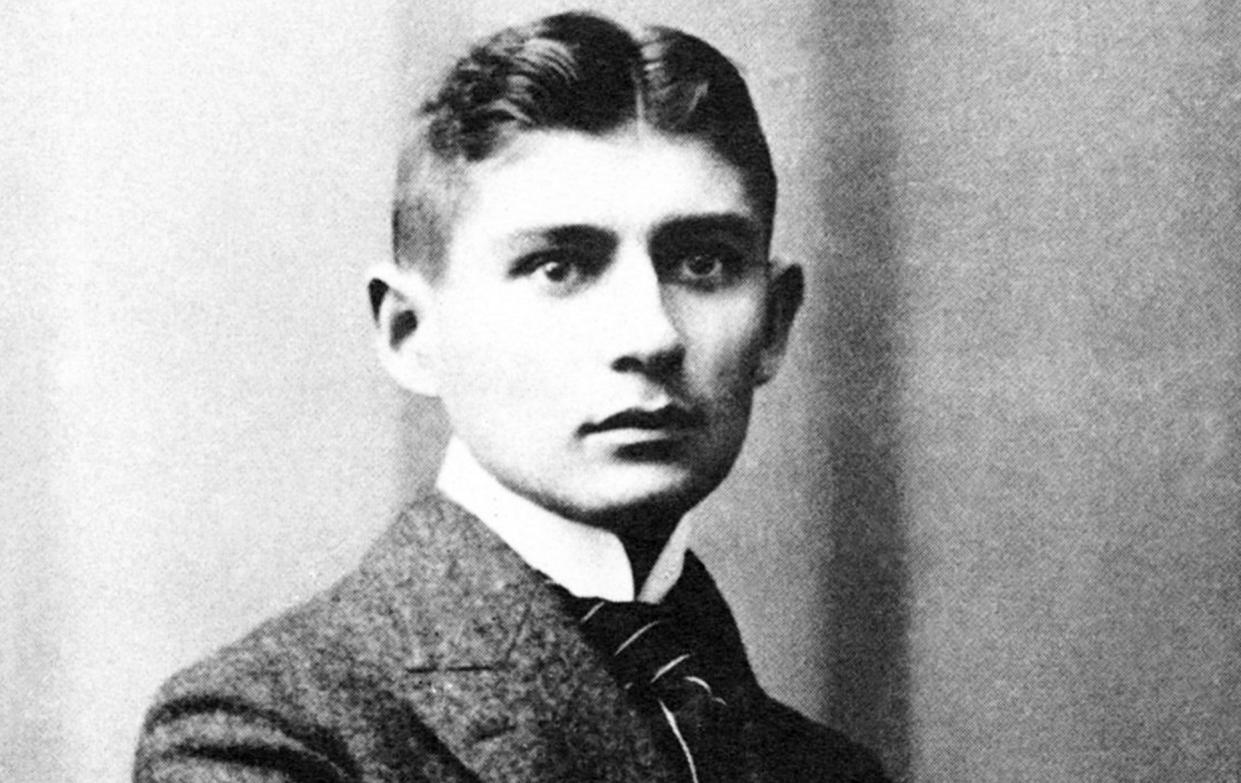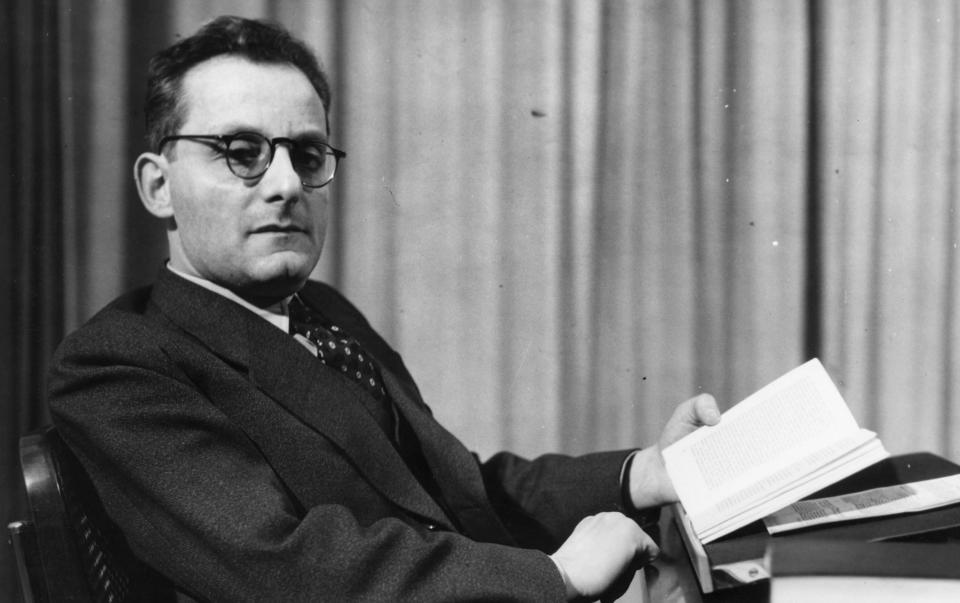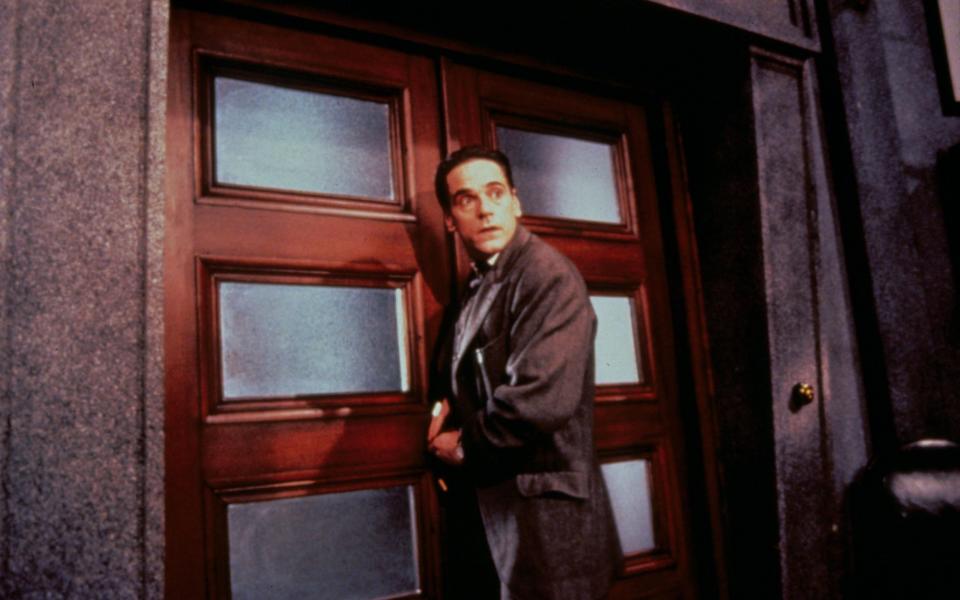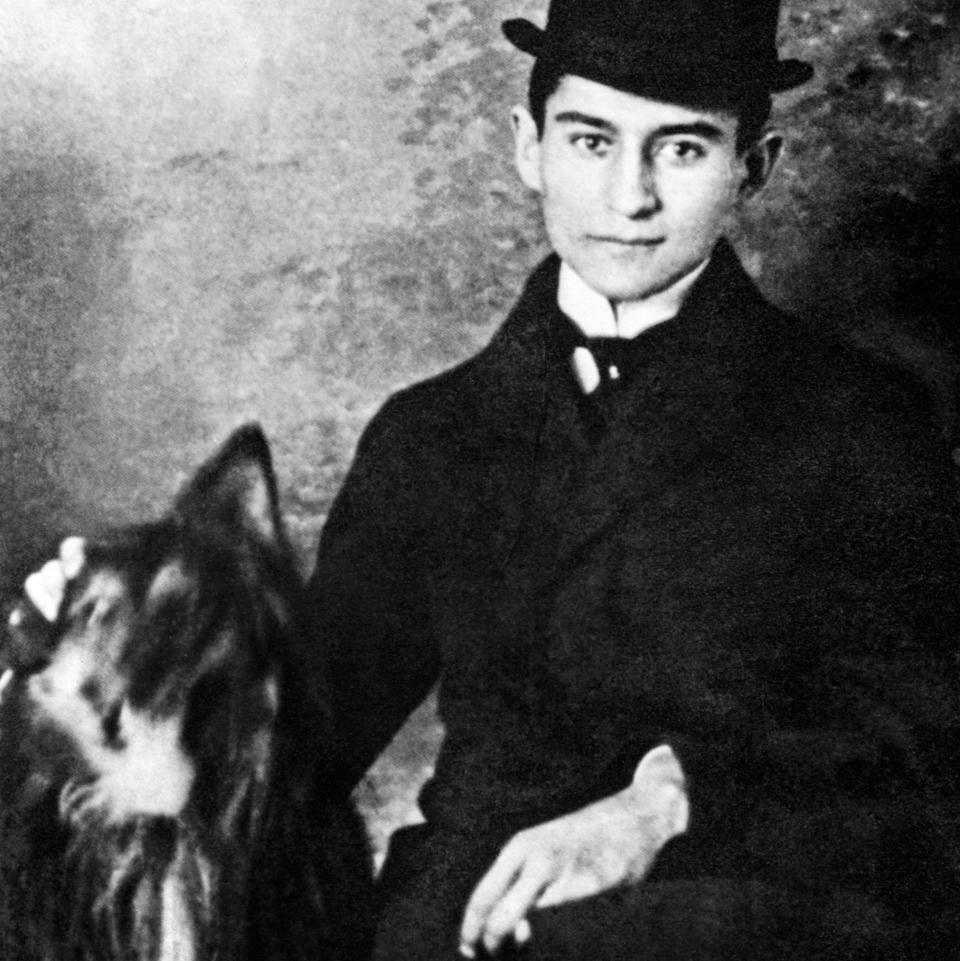Why the word ‘Kafkaesque’ should be banished forever

- Oops!Something went wrong.Please try again later.
- Oops!Something went wrong.Please try again later.
In the century since Franz Kafka’s death, the great Czech writer has achieved an honour as rare as it is dubious: he has become a cliché. Not just any cliché, either, but the one that I suspect ranks as the most overused and hollow of all: the term “Kafkaesque”.
Yes, there are serious uses – those painfully recurrent tales of the blameless trapped in limbo by a decaying court system or bureaucratic incompetence – but, increasingly, “Kafkaesque” has become a devalued term. In recent years, I’ve seen it used to describe everything from the Scottish bottle-deposit scheme (Lord Benyon, Minister for Climate, Environment and Energy) to a Dublin county council attempt to rename Orwell Road as “Independent Ukraine Road” (Brendan O’Connor, reporter at the Irish Independent). Even this paper is guilty, with Laura Craik writing that post-Christmas shop-returns policies are “a nightmare that can best be described as ‘Kafkaesque’”. The list could go on, and on.
The slippage is easy enough to understand. In the world of cliché, that which is “Kafkaesque” is also, as Craik proves, usually a “nightmare”, and – frankly – many people’s idea of a nightmare nowadays is any situation, however minor, where they can’t immediately get their own way. Kafka himself was sensitive enough to quotidian impediments: he once fled to the country in search of silence only to find himself plagued by a neighbour ceaselessly practising the French horn. But he also understood the scale of human suffering.
What Kafka would make of our use of “Kafkaesque” is a moot point. He would almost certainly be too busy getting over the surprise that anyone knew his name at all. Though he lived for writing, he published only two slim short-story collections before he died of tuberculosis, aged 40, in June 1924 – and those collections were wrung out of him by his friend Max Brod. His scattered contributions to literary magazines did little to establish a reputation. Beyond a small circle, Franz Kafka was nothing more than a functionary at the Workers’ Accident Insurance Institute in Prague – just another office clerk, even if his reports were unusually well-written.
We have Brod to thank for the survival of almost all the Kafka we read today, though Kafka would be unlikely to share our gratitude. He would, instead, be outraged at what has gone down as the most famous and felicitous betrayal in literary history. As he was dying, Kafka instructed Brod to burn everything he had ever written – “without exception”. Brod disobeyed, and later said that if Kafka really had been so determined, he “should have appointed another executor”.

Brod had, to be fair, made his intentions clear. A prolific critic and minor literary star himself – he had published four books by the age of 24 – he did his utmost to persuade Kafka to publish during his lifetime, and to promote him when he did. In one review, Brod wrote that “if the angels in heaven told jokes, it would have to be in the language of Franz Kafka”. Even praise like this couldn’t conquer Kafka’s mountainous reticence, but within two months of his friend’s death, Brod had signed a contract to edit three novels from old drafts. The Trial appeared in 1925, The Castle in 1926, and Amerika in 1927.
Posthumous fame was not instantaneous. As the 1930s came round, the conditions were hardly propitious for a Jewish author to find readers in the German-speaking world. But with English and French translations appearing across the decade, connoisseurs began to take note, and Kafka’s reputation as a soothsayer began to emerge. In 1939, Christopher Isherwood proclaimed that Kafka, “alone among modern novelists, discovered a really satisfactory way of writing about the age in which we live… Prophetically he has described it all… the nightmare world of dictators.”
The postwar period made this seem truer than ever. To a world reeling from the horrors of Nazism, and increasingly aghast at the bureaucratic totalitarianism of the USSR, Kafka spoke with uncanny foresight of the powerlessness and futility that marked so many lives and deaths long after his own. Add the strange beauty of his prose, and it became irresistible. Brod, who had fled Prague with a suitcase of Kafka’s papers on the last train before the Nazis took control, spent the next three decades tending his friend’s flame, sending forth a steady flow of unseen works. Kafka was reborn as a literary star, not one writing jokes in heaven, but one whose unblinking eyes saw further into darkness than anyone else’s.

And yet: as early as 1947, some were worried it was all too much. The great American critic Edmund Wilson wrote that year, with some dread, that a fascination with Kafka’s particular “comedy and pathos of futile effort” – a style he described as “all too much” – was “likely to make ‘Kafka-esque’ a permanent word”. He can hardly have known how right he would be.
There are good reasons as well as bad for the permanence of the word. Kafka managed to pinpoint a very modern experience of powerlessness, one whose presence is felt as implacably in the everyday as in the extraordinary. Where, before the birth of the modern state, people’s experiences of force majeure were meted out by nature or war, the postwar period saw our fates become first the whim of resistless bureaucracy, and then of even more resistless machines. The increasing “computer says no” quality of the 21st century has expanded the empire of the senseless to what seems like every inch of existence, with apps and algorithms delivering verdicts on everything from credit ratings to customer complaints. Under the new yoke of AI chatbots, it’s possible to feel a nostalgic longing for the comparative humanity of the whey-faced bureaucrat with his stamp and forms. As Kafka wrote in his parable Before the Law, the doorkeepers of the law are “each more powerful than the last”.
It’s a small consolation to think that Kafka himself would probably savour his reputation’s slide down the ladder of triviality. He was more sensitive than anyone else to the dreadfulness of the everyday, but he also found the dreadful almost overwhelmingly funny. According to his friends, his own stories often made him laugh uncontrollably. No one ever said the angels’ jokes were kind, and Kafka would probably appreciate this one precisely for its unkindness to his legacy.

Yet, as the centenary of his death approaches, it would be good to hear Kafka in his glory, and behind the noise of cliché – to read him with fresh eyes. For the real Kafkaesque doesn’t consist in the situations he depicted, but in a special quality of his prose – what the critic Reiner Stach has called a “peculiar form of rhetoric, which obscures the situation with analytical precision”. Kafka’s narrators have a habit of linguistically chipping away at any given thought or situation until what was once solid becomes so much marble dust in the air. When it catches the light, it sparkles. Read beyond The Trial and The Metamorphosis, and his oeuvre reveals itself as endlessly fecund and strange. Leaf through his short stories and you will find Alexander the Great’s warhorse turned lawyer, a learned ape addressing an academy in white tie, and a set of reflections for gentlemen jockeys.
As for customer complaints, Kafka believed wholly in their efficacy. In The Trial, after K complains about his arresting officers, he finds them in a stationery cupboard being whipped for their transgressions. Now that’s what I call service.

